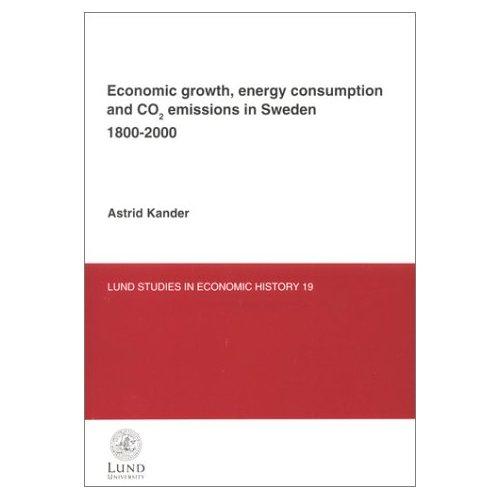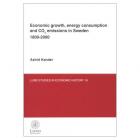Kander, Astrid. Economic Growth, Energy Consumption and CO2 Emissions in Sweden, 1800-2000. Lund Studies in Economic History 19. Stockholm: Almqvist and Wiksell International, 2002. This book presents a rich and extensive empirical study on biophysical aspects of two hundred years of Swedish economic history. Its first objective is to provide an empirical database on Sweden’s energy consumption—a huge effort that extends mainstream approaches of energy accounting by including “traditional” energy carriers such as firewood and food/feed for human and animal work. These features of energy use are of crucial importance with respect to the functioning and understanding of pre-industrial energy systems. The book also searches for the driving forces of the development of energy consumption and intensity. Analyzing the interrelationship of energy and economic growth on the level of economic sectors allows us to quantify the relative contribution of either sectoral or technical change to the decrease in energy intensity. Furthermore, another important aspect that Kander discusses in detail is the impact of shifts in the composition of energy carriers and their respective energy quality in changing energy and CO2 intensity. The study shows that energy quality is of minor importance with regard to the decrease in energy intensity but of significant relevance with respect to CO2 intensity. What makes the book valuable for scholars is the extensive data and the annex, which provide a wealth of empirical data in time series, including data on energy consumption (some at a sectoral level), as well as results for energy and CO2 intensity. These data sets are extremely useful for a broad range of research questions and contribute to an empirical environmental history research. (Text adapted from an H-Net review by Fridolin Krausmann.)
Economic Growth, Energy Consumption and CO2 Emissions in Sweden, 1800-2000
Kander, Astrid | from Multimedia Library Collection:
Books & Profiles



